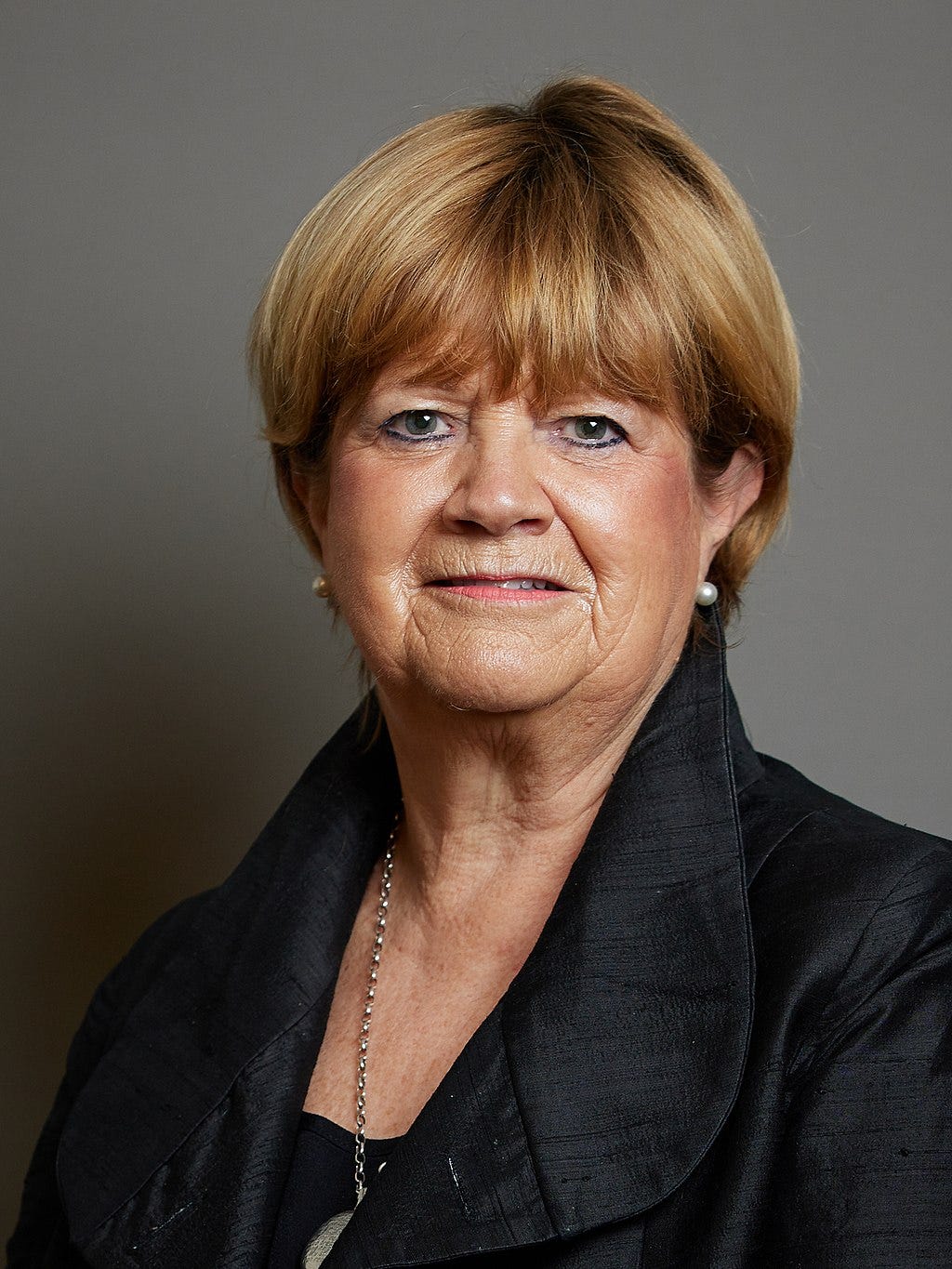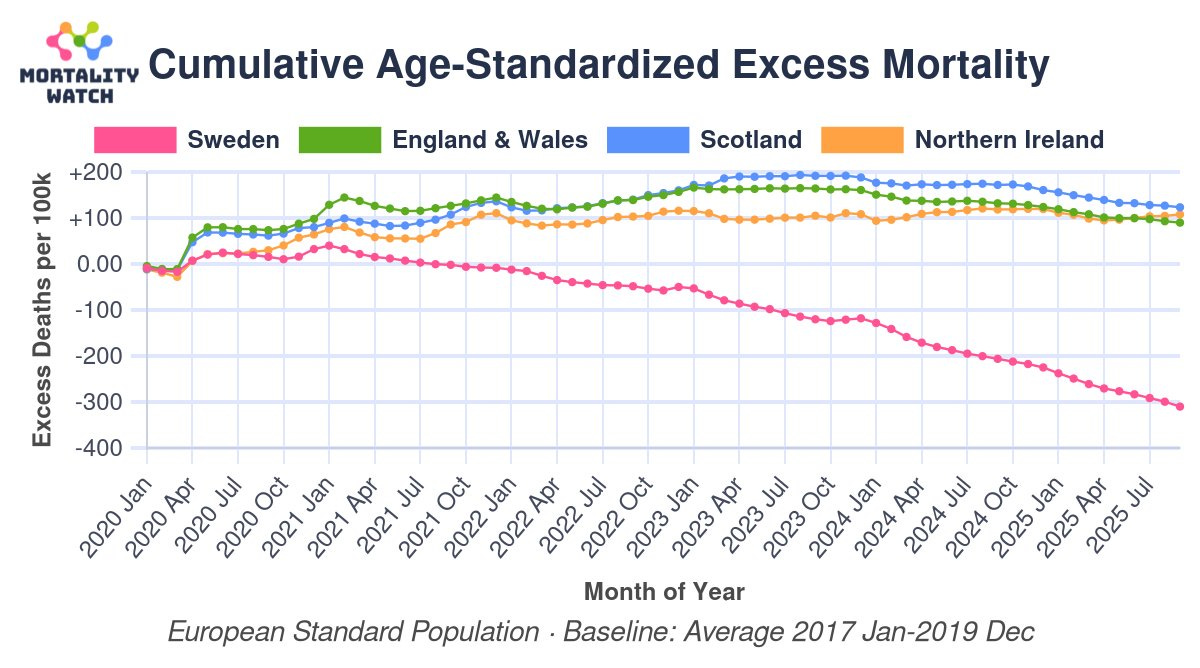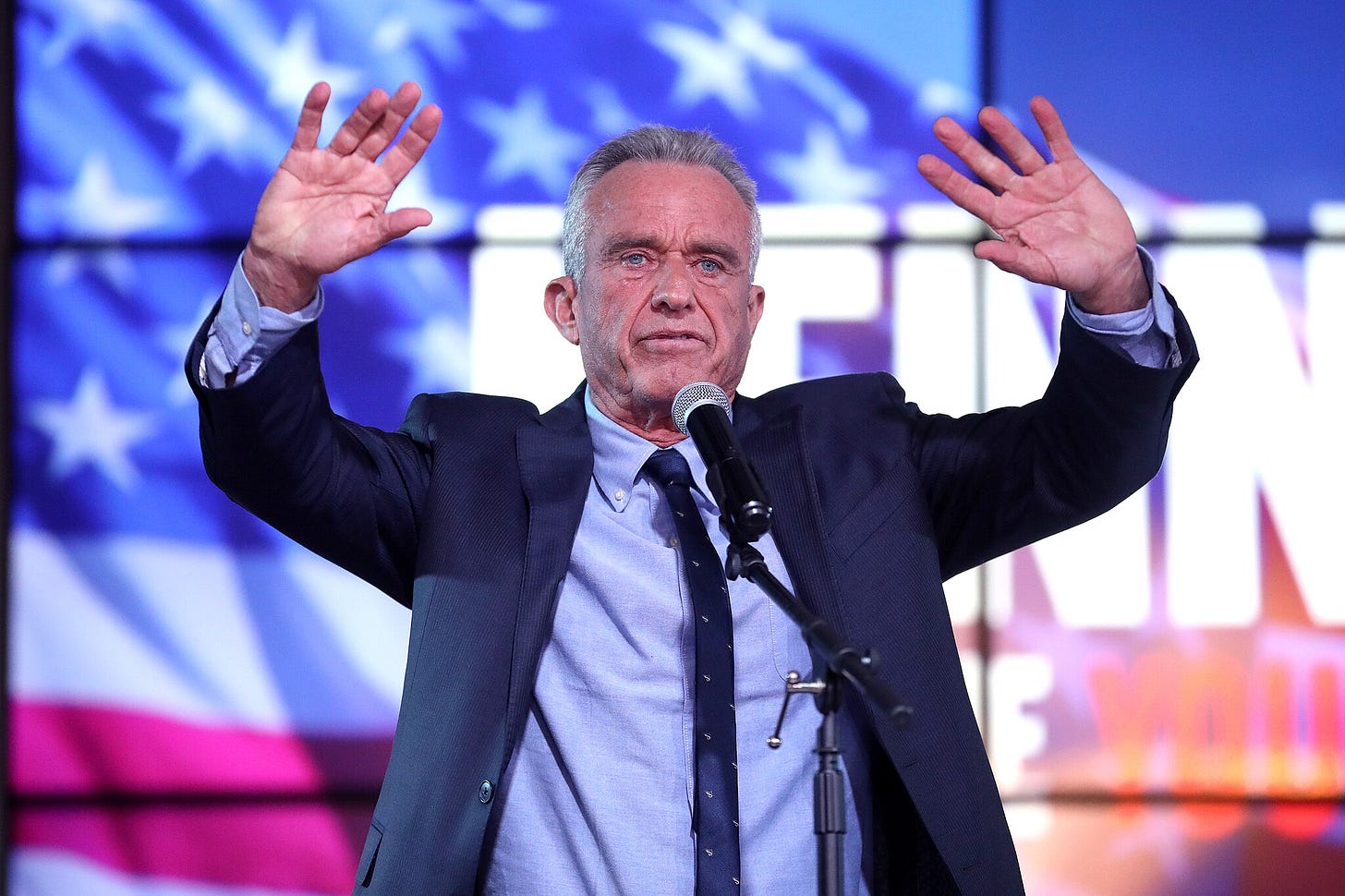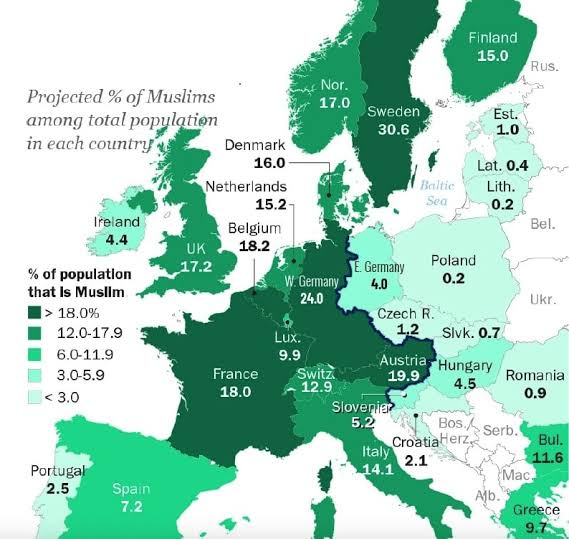News Round-Up: UK’s ‘Sham’ Covid Inquiry, US Backlash for BBC’s ‘Broadcast Hoax’, and CDC Looking into Vaccines’ Autism Links
Every week, the editorial team of Freedom Research compiles a round-up of news that caught our eye, or what felt like under-reported aspects of news deserving more attention.
Over the past week, the following topics attracted our attention:
UK Covid Inquiry Recognises Lockdown Harms to Children, Fails Otherwise
CDC Recognises Claim ‘Vaccines Do Not Cause Autism’ Not Evidence-Based
BBC Faces US Watchdog for Deceitful Reporting
Young French Muslims Long for Sharia Law
Norway Small Town: 80% of Social Assistance Paid to Immigrants
UK Covid Inquiry Recognises Lockdown Harms to Children
Childhood was ‘brought to a halt’ by draconian Covid lockdowns, the official UK Covid inquiry has found. Young lives were blighted even though the ‘vast majority’ of children were immune to the deadly virus, the report has added. Children’s education and wellbeing were sacrificed to save their elders, The Daily Mail writes.
In the report, Baroness Hallett, chairman of the Covid-19 Inquiry, said closing schools and nurseries in early 2020 ‘were steps taken to protect the adult population – they brought ordinary childhood to a halt’. She added: ‘For most children, the closure of schools, the inability to see friends and the requirement to stay at home, were of profound consequence.’ Teachers and parents are now struggling with children who are slow to pass key milestones, due to the huge impacts of the unprecedented 2020 shutdown.

However, while recognising the harms lockdowns did to children, the report itself largely took a wrong turn. The report argues that tens of thousands who died from Covid could have been saved during the so-called first Covid wave if the lockdown had been imposed seven days earlier in 2020. Their modelling suggests that it would have meant 23,000 fewer deaths in England. This would have equated to 48% fewer deaths in the first wave. However, the report does not suggest the overall death toll for the entire Covid crisis – 227,000 in the UK by the time it was declared over in 2023 – would have been reduced by an earlier lockdown. The lockdowns could have been avoided if steps such as social distancing and isolating those with symptoms along with members of their household had been introduced earlier than mid-March 2020, the report argues. But by the time ministers took action it was already too late and a lockdown was inevitable.
Epidemiologist and health economist Dr Jay Bhattacharya, an emeritus professor at the Stanford University School of Medicine who was a strong critic of Covid lockdowns and vaccine mandates during the crisis and now heads the US National Institutes of Health (NIH), was utterly critical of this outcome of the UK inquiry. “Fact check: not locking down at all (like Sweden) would have saved lives in the UK. Hard to believe how much money the UK spent on its sham covid inquiry,” he posted on X.

On top of that, we know without any inquiries that the harms from Covid itself were very limited and related to a tiny fraction of the population. A comprehensive study by John P. A. Ioannidis, a renowned Stanford University professor of medicine, et al, found in October 2022 that the pre-vaccination infection fatality rate in the 0-69 age group was 0.095%.
CDC Recognises Claim ‘Vaccines Do Not Cause Autism’ Not Evidence-Based
The US Centers for Disease Control and Prevention (CDC) has updated its webpage regarding the links between vaccines and autism. Although the headline on the page still states that “Vaccines do not cause Autism”, it now has an asterisk, which is explained at the bottom of the page: “The header “Vaccines do not cause autism” has not been removed due to an agreement with the chair of the U.S. Senate Health, Education, Labor, and Pensions Committee that it would remain on the CDC website.”
However, the content of the page now tells a different story. “Pursuant to the Data Quality Act (DQA), which requires federal agencies to ensure the quality, objectivity, utility, and integrity of information they disseminate to the public, this webpage has been updated because the statement “Vaccines do not cause autism” is not an evidence-based claim. Scientific studies have not ruled out the possibility that infant vaccines contribute to the development of autism. However, this statement has historically been disseminated by the CDC and other federal health agencies within HHS to prevent vaccine hesitancy,” it is said.

“HHS has launched a comprehensive assessment of the causes of autism, including investigations on plausible biologic mechanisms and potential causal links. This webpage will be updated with gold-standard science that results from the HHS comprehensive assessment of the causes of autism as required by the DQA,” a promise is made there as well.
This follows up on the promise made earlier this year by HHS Secretary Robert F. Kennedy Jr. to take the possible links between vaccines and autism seriously.
The change comes just weeks after the McCullough Foundation published a comprehensive review of the literature on autism titled Determinants of Autism Spectrum Disorder. They examined over 300 studies encompassing epidemiological, clinical, mechanistic, and molecular domains, integrating genetic, environmental, and iatrogenic factors into a unified framework. They concluded that the combination and early timing of routine childhood vaccination emerges as the single most significant driver of autism risk, supported by convergent mechanistic, clinical, and epidemiologic evidence. We talked extensively about the study with one of its authors, epidemiologist Nicolas Hulscher, MPH, on our recent podcast.
BBC Faces US Watchdog for Deceitful Reporting
The BBC is being investigated by the broadcast regulator in the US over its editing of a speech by US President Donald Trump featured in an episode of Panorama, The Daily Mail reports.
Brendan Carr, chairman of the Federal Communications Commission (FCC), wrote to the executives at the BBC this week and also to two US broadcasters, PBS and NPR, to find out whether the programme was aired in the US and had broken FCC regulations.
The BBC has apologised for the deceitful speech edit, which gave the wrong impression as if President Trump had made a direct call for violent action on January 6, 2021, while his supporters were protesting the 2020 presidential election results in the US Capitol in Washington D.C.
The BBC said the splicing of the speech was an ‘error of judgment’, but refused to pay financial compensation, after the US president’s lawyers threatened to sue the company for $1billion in damages unless a retraction and apology were published.
In an episode broadcast in June 2022, Newsnight reportedly played an edit of his speech, which was similar to the one used in the Panorama programme. Carr’s letter reportedly outlined how the two segments of speech that had been spliced together had been spoken almost an hour apart. He said: “In doing so, the BBC programme depicts President Trump voicing a sentence that, in fact, he never uttered. That would appear to meet the very definition of publishing a materially false and damaging statement.”
He also wrote: “As you may know, broadcasters regulated by the FCC have a legal obligation to operate in the public interest. Those public interest requirements include prohibitions on news distortion and broadcast hoax.”
In January, Carr asked the FCC Enforcement Bureau to open an investigation of PBS and NPR and said that ‘Congress is actively considering whether to stop requiring taxpayers to subsidise NPR and PBS programming’.
In May, Trump signed an executive order aiming to slash public subsidies to the broadcasters over ‘bias’ in their reporting.
Doctoring Trump’s speech is not the only accusation the BBC has been facing. Their bias has come into question across a wide array of topics, including race, transgender issues, immigration, and pro-Hamas reporting.
Young French Muslims Long for Sharia Law
Some 57% of Muslims aged 15 to 24 believe Islamic law should outrank French legislation in areas such as ritual slaughter of animals, marriage and inheritance, The Telegraph reports. It is thought to be a steep rise from three decades ago, when a lower 36% of French Muslims aged 18 to 24 said sharia should take precedence.
François Kraus, the historian who wrote the study, suggested the findings pointed to “a process of re-Islamisation” driven by younger generations. He said: “This survey very clearly outlines the profile of a Muslim population increasingly structured around rigourist religious norms and tempted by an Islamist political project.”
“Fundamentalism has won over the minds of more than one in three Muslims,” Kraus added.

38% of those surveyed approved of all or part of ‘Islamist’ positions in 2025, double the proportion who expressed such views in 1998. Kraus told The elegraph that “here is a need for radicalism which is expressed through a much stronger religious rigour… which is not limited to faith, but translates into a desire to govern society, or at least the behaviour of Muslims in France, according to Islamic precepts.”
“It also translates into a very violent gender separatism. You have 45% of young Muslims who refuse to ‘faire la bise’,” Kraus said, referring to the customary French cheek-kiss greeting.
Sharia has provisions that are incompatible with French law, including unequal inheritance for women, corporal punishment for crimes, and strict limits on freedom of expression and sexuality.
The report also revealed a dramatic increase in Mosque attendance, which rose from 7% in 1989 to 40% today. Meanwhile, strict fasting during Ramadan jumped from 51 to 83% and the proportion of young women wearing the veil has nearly tripled.
Social habits have also changed: alcohol consumption among Muslims under 25 has fallen from nearly 30% in 2011 to 12% today. Only 12% of young Muslims now want Islam to adapt to modernity, down from 41% in 1998.
France has Europe’s largest Muslim cohort, making up around 7% of the French population, up from less than 1% 40 years ago.
Norway Small Town: 80% of Social Assistance Paid to Immigrants
Four out of five kroner in social assistance goes to refugees in the Norwegian city of Sarpsborg. Now the municipality’s mayor is criticizing Norway’s integration policy and calling it a failure, citing a new municipal report, The Nordic Times writes.
In the Norwegian city of Sarpsborg, with approximately 60,000 inhabitants, a new municipal report has revealed that 79.1 percent of the financial social assistance paid out during 2024 went to refugees. Mayor Magnus Arnesen from the Conservative Party (Høyre) is now taking a strong stance against the Norwegian state’s integration policy. “The municipal director presents figures that I believe show that integration policy in Norway is not working. It is inadequate,” he said to the Norwegian state broadcaster NRK.
The report also shows that half of the immigrants in the municipality have a refugee background, compared to one-third at the national level. Over the past 15 years, the number of immigrants in Sarpsborg has increased by 132 percent, from 6,115 to 15,140 people.
According to Arnesen, the problems are partly due to how the Norwegian refugee reception system is designed. Refugees granted residence permits are initially settled in a municipality, but are free to move after five years without losing their introduction benefits.
Many then choose to move to larger cities like Sarpsborg, Fredrikstad, or Drammen – so-called secondary settlements. The problem is that they arrive without work and without the state funding that municipalities receive for primary settlement.


